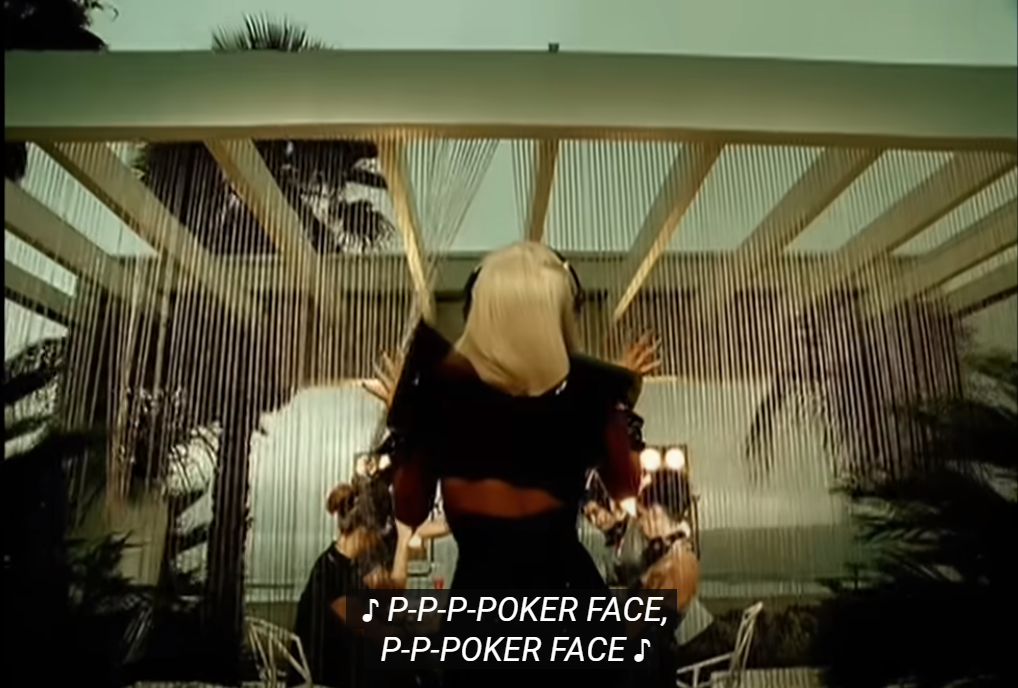The Dirty Lyric Snuck Onto The Radio
In August 2010, American singer-songwriter CeeLo Green released a song titled, simply, “[F—] You,” except that he used the real word where I used a lot of dashes. The song was very popular, winning a Grammy for Best Urban/Alternative Performance and earning two other nominations, including Song of the Year. It peaked at #2 on the Billboard 100 list in the United States and topped many other charts, including the “US Pop Airplay” chart. That one is specifically interesting because, as Wikipedia’s editors summarize, it “ranks the most popular songs of pop music being played on a panel of Top 40 radio stations in the United States,” and under U.S. law, you can’t play the f-word on the radio. The original version of “F— You” never played on any Top 40 radio stations in the U.S.; instead, they played a different version of the song, titled “Forget You.”
The tactic of having a radio-friendly “clean” version of an explicit song is nothing new, and it’s been an effective way for artists to reach the masses without censoring themselves in other mediums. Because there’s really no way to drop an F-bomb on the radio regularly without incurring major penalties.
Unless you’re Lady Gaga — maybe.
On September 23, 2008, the singer/songwriter and actress released “Poker Face” to wide acclaim. The single sold more than ten million copies in the U.S. alone, won a Grammy, and of course, topped charts globally — including peaking at #1 on the Pop Airplay chart. You’re probably familiar with it, but just in case, here’s the official music video, below. (If that doesn’t work, click here.) Turn on closed captions and you’ll get the official lyrics, too.
Part of the song’s chorus contains a synthesized version of Gaga’s voice saying “p-p-p-poker face p-p poker face” — you can hear it at around one minute and 13 seconds into the video above (or click here to get there directly). But if you don’t want to click, you don’t take my word for it: below is a screenshot from the video at that moment with the captions on.

The lyrics are 100% clean (unless you’re very anti-gambling). But if you actually listen to the song, the second “poker” doesn’t sound quite like the first. Gaga could be saying “f— her.” To be on the safe side, one radio station, KIIS-FM in Los Angeles, bleeped out that second “poker” — but no one else did.
They probably should have.
Every year, KIIS-FM hosts a one-day concert called “Wango Tango,” featuring top artists of the day. Lady Gaga appeared at Wango Tango 2009, And during her set, she paused to congratulate the hosts. She told the audience that “KIIS-FM is the smartest radio station in the whole world and I’ll tell you why. Because this song [Poker Face], it got played all over the world in thousands and tens of thousands of radio stations, but KIIS-FM is the only one that said I had to censor my lyric because they thought I might be saying something bad. And out of all the radio stations in the world that played this record, over, and over, KIIS-FM was the only one that was right — that caught on.”
Bonus fact: Every year, Las Vegas hosts the World Series of Poker, a series of tournaments with very high entry fees and even higher prizes. The main event has a $10,000 buy-in, a number that’s held constant for decades. The modern format is called a “freeze-out” — once you are out of chips, you’re out of the tournament; you can’t buy your way back in. Only one player — Stu Ungar — has won the main event three times during the freeze-out era. And he may have won a fourth time had it not been for a crippling drug problem.
In 1990, Ungar had the most chips in the tournament after the first two days. But, as the New York Times reported, he “failed to show on the third day and was found unconscious, in his underwear, on the floor of his room. He never returned to the table during the tournament.” In a situation like that, the dealer will take chips from you when you are forced to bet, but beyond that, you’re still in the tournament. Ungar’s lead was so massive that he managed to make a profit in the tournament despite being passed out in his room. The Times continues: “his early success earned him a ninth-place finish and a prize of $20,050.’‘ (Ungar died in 1998, likely from a heart attack brought on by a heart weakened from years of drug abuse.)
From the Archives: How Poker (and Boredom) Can Help Solve Murders: Check out the deck of cards designed to solve the unsolved crimes of the world. (And guess who gets to use them?)
